On April 13, 2022, five students were named winners of the Visiting Committee Prize for Undergraduate Book Collecting. Elizabeth Propst ’23 was awarded first prize of $3,000 for her entry “How Much Am I Bid for the Moon? Collecting Poetry on the Cheap”; Daria Rose Evdokimova ’22 was awarded second prize of $1,500 for her entry “Ardis Publishers and the Immigrant Identity<”; and Mika Simoncelli ’23, Elijah Suh ’22 and Jieyan Wang ’25 were co-awarded third prizes of $750 each for their entries “A Portrait of My Practice and My Community,” “Dreams from My Father: Or, Blessed Are Those Who Know Richard Nixon” and “From Nü to Woman: Female Voices Across the Chinese and American Cultures,” respectively.
“I was struck by the insights and nuance expressed in the students’ entries,” said Steven Riel, manager of serials cataloging and one of the five judges who reviewed the submissions. “It is wonderful to hear how the students are using the collections.” Gretchen Wade, reference/collection development librarian and fellow judge, added, “I'll never cease to be amazed at the uniqueness of each entry!”
Established in 1977, the Visiting Committee Prize for Undergraduate Book Collecting is awarded annually to recognize and encourage book collecting by undergraduates at Harvard. It is sponsored by the Members of the Board of Overseers’ Committee to Visit the Harvard Library. Students competing for the book-collecting prize submit an annotated bibliography and an essay on their collecting efforts; the influence of mentors; the experience of searching for, organizing and caring for items; and the future direction of the collection. Entries are judged on the purpose, consistency, and quality of the collection and the presentation of the essay and bibliography, not the collection’s size, cost or rarity.
The judges this year were:
- Mitch Nakaue, librarian for scholarly communication, Houghton Library
- Steven Riel, manager of serials cataloging, Harvard Library Information and Technical Services
- Lynn Sayers, administration and events coordinator, Maps and Media Services
- Diane Sredl, data reference librarian, Services for Academic Programs
- Gretchen Wade, reference/collection development librarian, Botany Libraries
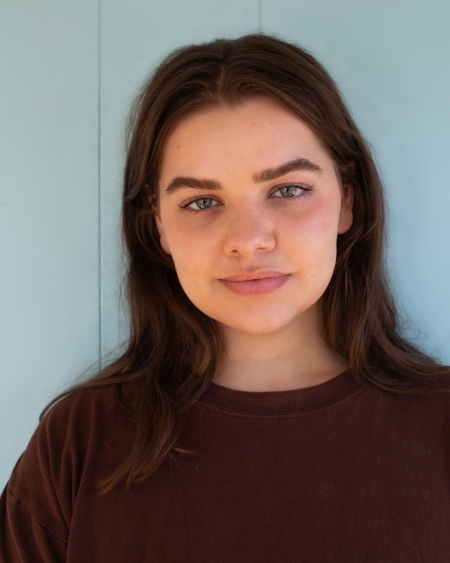
“How Much Am I Bid for the Moon? Collecting Poetry on the Cheap”
Elizabeth Propst ’23
“The beauty of my home in western North Carolina and the beauty of poetic verse have always nurtured in me the same sense of ineffable awe,” writes Propst. “Some of my first memories of poetry are set against a backdrop of lush nighttime, my mother’s voice competing with frog calls to read us Carl Sandburg…”
From approximately age 13 to 16, Propst hunted down the books that she had read about in encyclopedias and old issues of The New Yorker. “I bought everything used, and even within the world of used books I kept to the cheap end of the spectrum. I mostly hunted within a familiar circuit of about eight public libraries that always had book sales…”
In her junior year of high school, Propst was fortunate to have teachers who asked her to challenge the literary canon that she had taken for granted. “…I realized that poetry could describe the world that I was from. I discovered the world of Appalachian poetry.”
Coming to Harvard, Propst’s understanding of poetry deepened. “I love poetry of place, landscape, and nature… I am also drawn to poetry of grief and mourning… In American poetry in particular, these two themes — landscape and grief — weave endlessly in and out of each other, and often intersect with my third major interest, faith and spirituality.
“My collection isn’t complete, and it isn’t comprehensive, but it is an artifact of my own relationship with this genre that I love so much; a timeline of my growth as a reader and as a student.”
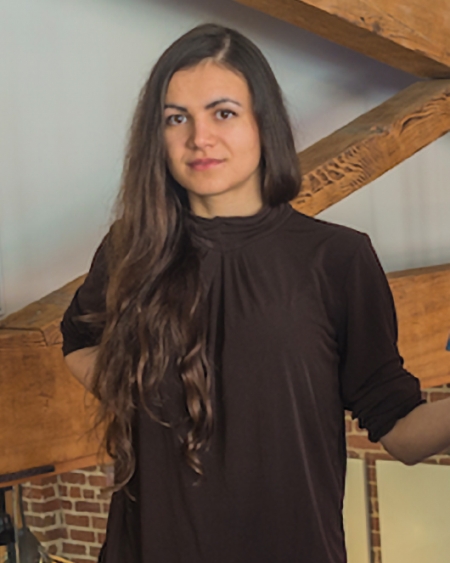
“Ardis Publishers and the Immigrant Identity”
Daria Rose Evdokimova ’22
“My collection focuses on Ardis Publishers, the first American publishing house dedicated to printing Russian and Soviet literature abroad. By today’s standards, Ardis would be described as small press — in the 30 years of its existence (between 1971 and 2002) all the books were published in the founders’, Carl and Ellendea Proffer, family home, self-funded by the couple’s modest academic salaries, in editions of a few thousand or less (which makes collecting those works now very challenging).”
Evdokimova’s collection is specifically focused on two authors that are central to Ardis’s existence — writer Vladimir Nabokov and Nobel-laureate poet Joseph Brodsky. “They also happen to be some of the authors who have impacted me personally the most. For one, I share my home city — Saint Petersburg — with both Nabokov and Brodsky. Like me, both of them are also immigrants to the United States writing in Russian and English. By virtue of sharing those biographical details they have helped me come to terms with my own identity as a first-generation Russian immigrant.”
Her interest in collecting Ardis books started when her childhood teacher from her hometown in Russia sent her a book by Ardis. “It was Nabokov’s first novel Mashenka [Mary], which, as I would later learn, was one of the earliest books for Ardis as well — a book of firsts in many regards. There is a tinge of geographical irony in an American-published book of Russian literature which belonged to my teacher, a Russian intellectual living in the Soviet Union, and now returning to its place of origin (the US) to belong to another Russian-American transplant (myself).
“The question of feeling accepted as an immigrant in the United States is also more relevant than ever, especially in the context of newly rising tensions between Russian and American governments…. To me, Ardis is a reminder that individual citizens can transcend the belligerent politics of hostile nations. If two Americans could find a way to publish timeless poems by Brodsky smuggled out of the Soviet Union at the peak of the Cold War, so we can find ways to create something beautiful during highly turbulent, polarized, even violent times. And despite the increasingly pervasive xenophobic sentiments, perhaps we can help ourselves and others around us feel a bit more at home.”
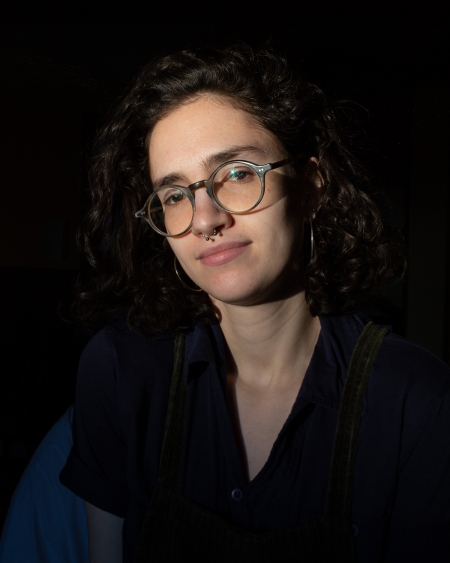
“A Portrait of My Practice and My Community”
Mika Simoncelli ’23
“My collection of photobooks, graphic novels, and zines tells a story of my growth as an artist. [Each] object in the collection references or commemorates other works, exhibitions, institutions, mentors and friends, classes, and communities. I collect books in order to have a physical representation of this web that makes up my world of photography and art…. My collection represents a toolbox that I’ve gathered of themes and formal strategies for my own practice, which is largely one of photography and zine- and book-making. I’ve also added books to my collection out of an interest in the way that images are sequenced and presented within them…”
Simoncelli has a growing sub-collection of works by artists she has relationships with. “In every case, these are also books and zines that hold up as works I admire, and that have influenced my own. Having community around my practice keeps me grounded in the intention of making work as a way of connecting with others. Collecting my friends’ work is an intimate way to celebrate our relationships, and to support their artistic practices.
“It feels fitting to begin my bibliography with Vivian Maier — a woman who died in anonymity, and whose publications are all posthumous, edited and published by people she never knew — and to end with a self-published zine by Alex Nelson, a young female photographer and a mentor to me…. [It] is important to me that every entry in the bibliography is not just a book, but a work of visual art as well.”
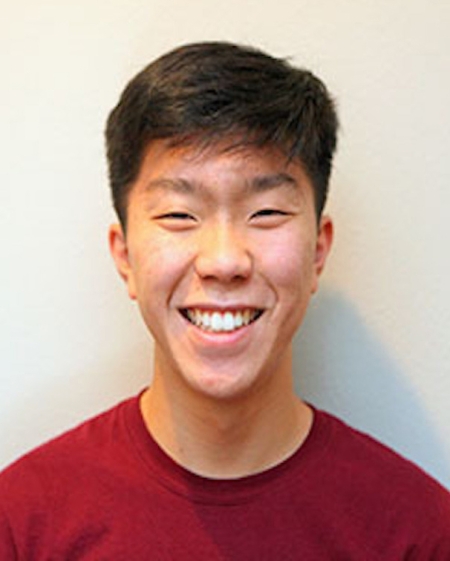
“Dreams from My Father: Or, Blessed Are Those Who Know Richard Nixon”
Elijah Suh ’22
Elijah Suh’s parents grew up as immigrants to the U.S. in the 70’s and 60’s. “My goal was to learn what my parents could not. I was eager to learn about post-war America…”
Suh began his freshman year by collecting biographies of the U.S. Presidents after World War II. His sophomore year, he declared chemistry as his concentration. His passion for the sciences was not unrecognized in his book-collecting efforts. “To understand the America my father arrived at means to understand the legacy of the atomic bomb and the scientists who birthed it.
“My Junior year was notable for my first excursions into the social aspect of post-war America.” He read How Can I Keep from Singing?: The Ballad of Pete Seeger by David King Dunaway and became an avid listener of Pete Seeger. “[It] is Pete Seeger who holds the highest place of esteem on my bookshelf. The biography of the activist who famously marked his banjo as a ‘Machine [That] Surrounds Hate and Forces It to Surrender’…. His musical timbre is only matched by his passion for environmental and social change, representing the necessity of kindness in a post-war America.
“[My Senior] year was one championed by a pursuit of a more ‘mature’ project—the culmination of my earlier efforts.” He read biographies of Henry A. Wallace (liberal Vice-President of FDR), John Kenneth Galbraith (agriculture economist), Hubert Humphrey, and Walter Mondale.
“My father had grown up near the oilfields of Marshall, Texas, while I experienced being the only Asian kid in Niceville, Florida, and North Charleston, South Carolina. The American South, with its history of pride, segregation, and bitter misunderstanding, became fascinating to me: and so much more during the post-war period…. I believe it is now time to turn South — to read, study, and collect on those individuals who defined civil rights and allowed us to live the way we do today.
“Los Alamos, the Cold War, and Watergate certainly created a unique environment, but I cannot wait to also tell my father how folk singers, Vice-Presidents from Minnesota, and colloquial poets indelibly shaped the United States of the 20th century…. By learning about his America, I have learned more about mine.”
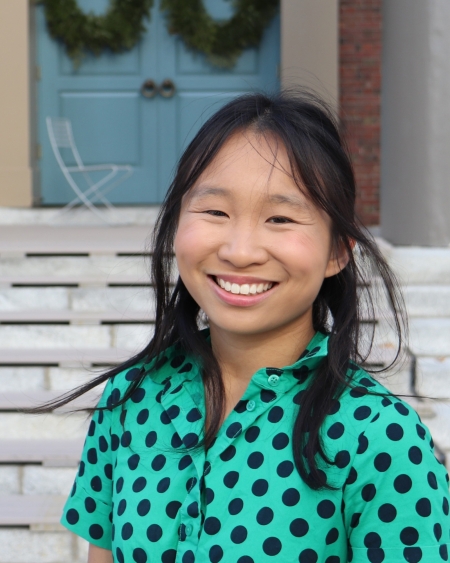
“From Nü to Woman: Female Voices Across the Chinese and American Cultures”
Jieyan Wang ’25
“I am a woman writer, and reading other women writers helps me understand my own voice. I also want to highlight literature’s ability to cross cultural boundaries… Women’s writing, I believe, is underrepresented in these contemplations about the transnational impact of literature.”
Wang’s collection has a focus on women of Chinese heritage in the 20th and 21st centuries. “The women’s voices featured in this collection all, in some way, have had an impact on both Chinese and American culture, whether it be through the translation of their works, raising their voices against injustices in history, or speaking to the Chinese-American experience. One of the core books in my collection is Yang Jiang’s Six Chapters from My Life ‘Downunder,’ a memoir of the author’s life during the Cultural Revolution. Yang Jiang was a celebrated author, well-versed in Chinese, English, and French literatures. During the Cultural Revolution, she was ‘sent down’ to the countryside to be ‘re-educated’ through manual labor.
“There is not one process through which I search for books.” Wang often finds books by reading other books (especially books concerning history). She is a regular reader of literary journals, and some books in her collection are written by authors she found in journals. Many books in her collection she did not intentionally seek out. However, she actively takes note of books in her daily life. Wang has found that “collecting is a form of recollection.” She is not only interested in the stories in books, but also their acquisition stories.
“I am grateful for the presence of these texts, grateful for the authors’ rich imagination and courage in writing, grateful that I can have this collection. This collection will never end, both in its process of collecting and in the meanings it holds.”